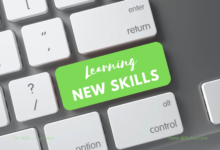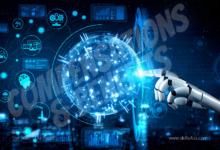
Artificial Intelligence (AI) Leads to Positive Change in Compensations and Benefits
Artificial intelligence covers every aspect of our personal and professional lives. And assists organizations in finding, attracting, hiring, and onboarding talent by forecasting, matching and aligning individual needs with organizational needs. It also helps them retain employees by studying and analyzing their unique behaviors and past attrition patterns. It also assists in designing and delivering learning and development modules promptly. And since compensation and benefits are the primary and essential functions in HRM, AI also helps automate its operations and activities to provide an improved employee experience. It can also help HR professionals recognize patterns, predict performance, and understand drivers and influences, which leads to improved compensation and benefits models and programs, thus increasing employee performance and retention. Thus, AI Leads to Positive Change in Compensations and Benefits.
Because AI leads to positive change in compensations and benefits. So, using it, the following positive changes can occur:
Justice and fairness
AI using intelligent algorithms analyzes past and recent reward and performance data. It identifies employee behavior and performance and finds patterns and associations between compensation and benefits programs, desired behaviors, and outcomes that determine high performance. Thus, it will help eliminate human bias and reward employees based on evidence and competence.
Personalization
AI can collect and analyze information about how we think and feel and predict how we might act in our personal and professional lives. Thus, by exploring individual motivations, we can customize pay and reward programs to help employees match their desires and abilities with organizational needs. Employees are rewarded by connecting them to their passions and allowing them the flexibility to choose a program that will keep them highly engaged.
AI also performs predictive analytics on big data to infer how to design a compensation and benefits program and to assess the balance between fixed and variable wages across different levels and employee groups.
Flexible applications
According to many studies, many organizations conduct performance reviews more than once a year. However, compensation and benefits hardly change or evolve.
Employees who receive regular small rewards such as money, points, or acknowledgments are more engaged than those who receive compensation and bonuses once a year. Depending on AI applications, organizations can shift from rewarding their employees once a year to doing so in stages during the workflow. It results in employees being more engaged and satisfied and not having to wait until the end of the year to be rewarded for their work.
Reduce costs
While there will be an investment in intelligent technology such as artificial intelligence, this will significantly reduce operational costs. It will be easier to deploy and run various customized programs covering any geographic area simultaneously. The increased effectiveness of AI programs will lead to higher ROI in terms of reduced employee turnover, engagement, engagement, and retention. As a result, there will be a return on investment in effectiveness and increased participation.
Developing the employee experience
Improving the employee experience is a natural result of customized compensation and benefits programs, seamless implementation, and easy access to information. Using chatbots in operational activities will reduce employee dissatisfaction with the performance of aggregate rewards and resolve queries quickly. For example, text, email, phone, chatbot, or pictures will increase engagement and the programs’ effectiveness. Also, natural language processing can help detect employee sentiment and react quickly to retain and engage employees.
Is artificial intelligence replacing humans?
Many believe that artificial intelligence may permanently replace humans. But regardless of the expected results of integrating intelligent technology into the work of organizations, using it appropriately, and investing it to increase the effectiveness of the work of employees, it will always help carry out tasks more accurately and quickly. Thus, it will open more scope for business leaders, managers, and employees alike to focus on creativity, communication, and strategic plans that organizations did not have enough time to focus it.
Ensuring that the right skills are in place is paramount to migrating HR management activities across an AI-enabled environment while maintaining a strong focus on traditional HR functions such as administrative support, training, consulting, employee advocacy, and strategic partnership.



